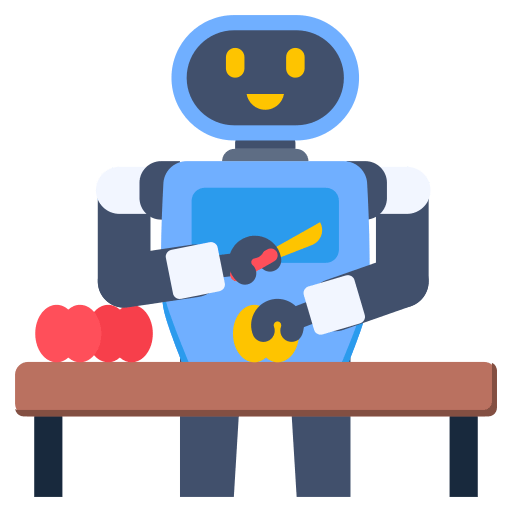
What is the concept of Artificial Intelligence?
Artificial Intelligence (AI) is a branch of computer science that focuses on creating intelligent machines that can perform tasks that typically require human intelligence. The concept of AI is rooted in the idea of developing algorithms, models, and systems that enable computers to mimic human cognitive abilities such as reasoning, learning, problem-solving, perception, and language understanding. The ultimate goal of AI is to build machines that can autonomously carry out complex tasks, adapt to new situations, and improve their performance over time.
AI can be broadly categorized into two types:
- Narrow or Weak AI: Narrow AI refers to systems that are designed to perform specific tasks or solve particular problems with a high level of proficiency. These AI systems excel in a single domain but lack general intelligence. Examples of narrow AI applications include virtual assistants like Siri and Alexa, image recognition software, language translation tools, and recommendation systems on streaming platforms.
- General or Strong AI: General AI, also known as strong AI, refers to systems that possess human-like intelligence and can understand, learn, and apply knowledge across a wide range of tasks. Unlike narrow AI, general AI would have the ability to reason, comprehend abstract concepts, and exhibit consciousness. Creating true general AI remains an aspirational and complex goal for the field of AI, and it raises significant ethical, societal, and philosophical questions.
Key concepts and techniques in AI:
- Machine Learning (ML): A subset of AI, machine learning involves the development of algorithms that enable computers to learn from and make predictions or decisions based on data without being explicitly programmed. There are various types of machine learning, including supervised learning, unsupervised learning, and reinforcement learning.
- Neural Networks: Neural networks are a class of machine learning models inspired by the structure and functioning of the human brain. They consist of interconnected nodes or neurons arranged in layers, and they are used for tasks like image and speech recognition, natural language processing, and more.
- Natural Language Processing (NLP): NLP focuses on enabling computers to understand, interpret, and generate human language. It has applications in chatbots, sentiment analysis, language translation, and text summarization.
- Computer Vision: Computer vision deals with enabling machines to interpret and process visual information from images or videos. It is employed in various tasks, such as object detection, facial recognition, and autonomous vehicles.
- Robotics: Robotics combines AI with mechanical engineering to create intelligent machines (robots) that can interact with the physical world, perform tasks, and adapt to changing environments.
- Expert Systems: Expert systems are AI programs that use a knowledge base and a set of rules to mimic the decision-making process of human experts in specific domains.
- Reinforcement Learning: Reinforcement learning is a type of machine learning in which an agent learns to make decisions by interacting with an environment and receiving feedback in the form of rewards or penalties.
Ethical Considerations:
As AI technology continues to advance, ethical considerations become increasingly important. Questions surrounding data privacy, algorithmic biases, job displacement, safety, and the social impact of AI are being actively discussed and addressed by researchers, policymakers, and industry leaders.
Overall, AI represents a rapidly evolving field with the potential to revolutionize various industries and aspects of human life, but it also comes with challenges that need to be thoughtfully managed to ensure its responsible and beneficial development.
What is expected of the future of Artificial Intelligence (AI)

Here are some key expectations for the future of AI:
- Continued Integration in Industries: AI is anticipated to become an integral part of more industries, driving automation, efficiency, and innovation. Sectors like healthcare, finance, manufacturing, transportation, and agriculture are likely to witness AI-powered solutions that optimize processes and enhance decision-making.
- Advancements in Machine Learning: Machine learning algorithms are expected to become more sophisticated and efficient, enabling better performance in various tasks. Deep learning, a subset of machine learning, may further revolutionize fields like computer vision, natural language processing, and speech recognition.
- Personalized and Contextual Experiences: AI-driven personalization is likely to become more prevalent, offering users tailored content, product recommendations, and services based on individual preferences and behavior. AI will enhance user experiences in digital platforms, entertainment, and e-commerce.
- Autonomous Systems and Robotics: The development of AI-powered autonomous systems and robots is expected to progress, leading to increased automation in manufacturing, transportation, warehousing, and other industries. This may also impact the job market, creating a need for reskilling and upskilling the workforce.
- Ethical AI and Regulation: As AI’s influence grows, there will be a heightened focus on ethical considerations and the need for transparent, fair, and unbiased AI systems. Governments and organizations are likely to develop regulations and guidelines to address data privacy, algorithmic biases, and the responsible use of AI.
- Breakthroughs in Healthcare: AI is poised to have a significant impact on healthcare, with advancements in medical imaging, drug discovery, patient diagnosis, and personalized treatment plans. AI-powered health monitoring and telemedicine solutions may become more accessible and accurate.
- Natural Language Understanding and Conversational AI: Progress in natural language processing and understanding may lead to more sophisticated chatbots, virtual assistants, and language translation tools, enabling more natural and seamless interactions between humans and machines.
- AI for Climate Change and Sustainability: AI can play a crucial role in addressing climate change and sustainability challenges. It can help optimize energy consumption, manage resources efficiently, and aid in environmental monitoring and conservation efforts.
- Cognitive Enhancement and Brain-Computer Interfaces: AI may contribute to advancements in cognitive enhancement technologies and brain-computer interfaces, enabling direct interactions between the human brain and machines.
- Exploration of General AI: Although true general AI remains a distant goal, research and exploration in the field may continue, potentially pushing the boundaries of what AI can achieve in terms of human-like intelligence and consciousness.
It’s important to acknowledge that with advancements in AI, there may also be concerns and challenges related to job displacement, data privacy, security, and potential misuse of AI technology. Striking a balance between progress and responsible development will be crucial in shaping the future of AI for the benefit of humanity.
How can AI be integrated to Websites and Blogs to improve their quality?

Integrating AI into websites and blogs can significantly enhance their quality and user experience. AI-powered tools and techniques can help with content creation, personalization, user engagement, and various other aspects of website management. Here’s a detailed explanation of how AI can be utilized to improve website and blog quality:
- Content Creation and Curation:
- Natural Language Generation (NLG): AI-driven NLG tools can automatically generate high-quality, relevant, and engaging content. These tools can be used to create blog posts, news articles, product descriptions, and more, saving time for content creators and expanding the website’s content offerings.
- Content Curation: AI algorithms can analyze user preferences and behavior to curate personalized content recommendations. By offering users content tailored to their interests, websites can increase engagement and time spent on the platform.
- Search Engine Optimization (SEO):
- AI can assist in keyword research, helping website owners identify the most relevant and effective keywords to target in their content for better search engine rankings.
- AI-powered content analysis tools can evaluate the quality of web content, suggesting improvements to optimize for search engines and increase organic traffic.
- Chatbots and Customer Support:
- AI chatbots can be integrated into websites to provide instant and automated customer support. These chatbots can answer common queries, assist with navigation, and offer personalized recommendations based on user interactions.
- Chatbots can help improve user engagement, reduce response times, and enhance overall user satisfaction.
- Personalization and User Experience:
- AI can analyze user behavior, preferences, and historical data to personalize the website’s content, product recommendations, and user interface. Personalization enhances user engagement and increases the likelihood of conversion.
- AI-powered recommendation systems can suggest related articles, products, or services based on users’ browsing history and interests, leading to increased engagement and conversions.
- User Analytics and Insights:
- AI analytics tools can analyze user interactions, patterns, and feedback to provide actionable insights. These insights can help website owners understand user behavior, preferences, and pain points, enabling them to optimize the website’s layout, content, and user experience.
- Automated Content Moderation:
- AI can be used to automatically moderate user-generated content, such as comments and reviews. This helps maintain a positive and safe environment for website visitors.
- Natural Language Processing (NLP) for Content Understanding:
- NLP algorithms can be utilized to understand the sentiment and context of user comments, emails, or reviews. This assists website owners in gauging user satisfaction and addressing potential issues promptly.
- A/B Testing and Conversion Rate Optimization:
- AI can be employed to perform A/B testing on website elements such as call-to-action buttons, layouts, and content variations. By analyzing user responses, AI can help identify the most effective design and content to improve conversion rates.
By integrating AI in these various ways, websites and blogs can deliver more personalized, engaging, and valuable experiences to their users, ultimately improving their quality and driving better results for the website owners. It’s essential to choose AI tools and solutions that align with the website’s goals and target audience while ensuring data privacy and responsible use of AI technologies.





